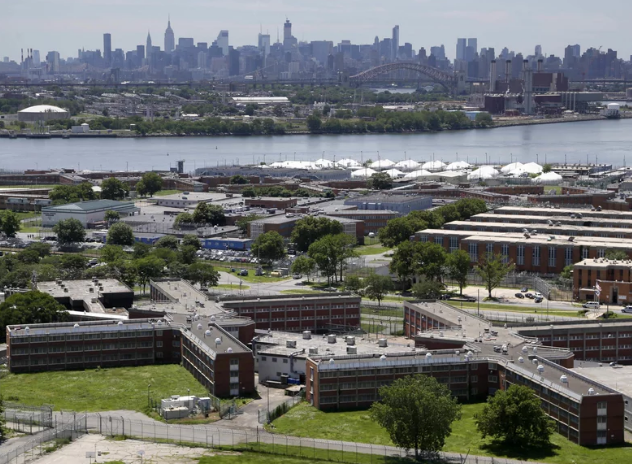How Rikers Island Became New York's Largest Mental Institution
Some mentally ill NYC detainees stay in the system for years without ever standing trial

TW: Suicide
Rikers Island in the New York City borough of Queens is the site of one of the world's largest correctional institutions and has been described as New York's best-known jail. The complex consists of ten jails, and is intended to hold local offenders who are awaiting trial, serving sentences of one year or less, or are temporarily placed there pending transfer to another facility.
Records show that more than half the people in New York City custody, around 3,000 men and women, have been diagnosed with a mental illness. On any given day, hundreds of them are stuck at Rikers awaiting evaluations or in line for beds at state forensic psychiatric hospitals. Competency evaluations are meant to ensure that people understand the charges against them and can assist in their own defense, and that process is supposed to last no longer than a year. Due to a limited number of beds in state forensic psychiatric hospitals, the grinding nature of the state courts and the inability of city officials to resolve a long-term crisis on Rikers Island, the restoration process for some detainees has dragged on for three years or longer, records and interviews show.
“The state has designed a system that on paper is intended to ensure people get treatment when they are found unfit,” said Elena Landriscina, a staff attorney with the Legal Aid Society, which represents indigent people charged with crimes in New York City. “In reality it is not providing that treatment in a timely way.”
Mentally ill detainees have been subject to harsh conditions, inhumane treatment and inadequate supervision, records and interviews show. Guards have routinely failed to bring them to medical appointments or court appearances and have often left them unattended, even if they have been flagged as suicide risks. At least 18 mentally ill detainees have died by suicide, drug overdoses and other causes in the past three years alone. One man with a history of psychiatric hospitalizations had missed 26 medical appointments in seven months when a guard left him unattended in March 2021. He wedged his head through his cell’s food tray slot, asphyxiating himself.
Rikers Island has long struggled to care for mentally ill detainees, with lapses chronicled in regular reports by court monitors appointed to oversee reforms in the jail system. But the problem has become more urgent. As officials have moved to reduce the number of people in the jails, the proportion of detainees with serious mental illnesses has doubled in the past decade, reaching a monthly average of more than 1,200 earlier this year. Even so, records show, the jails’ specialized mental health units can hold no more than 980 people at a time.
Read the full feature "How Rikers Island Became New York’s Largest Mental Institution" from the New York Times.










